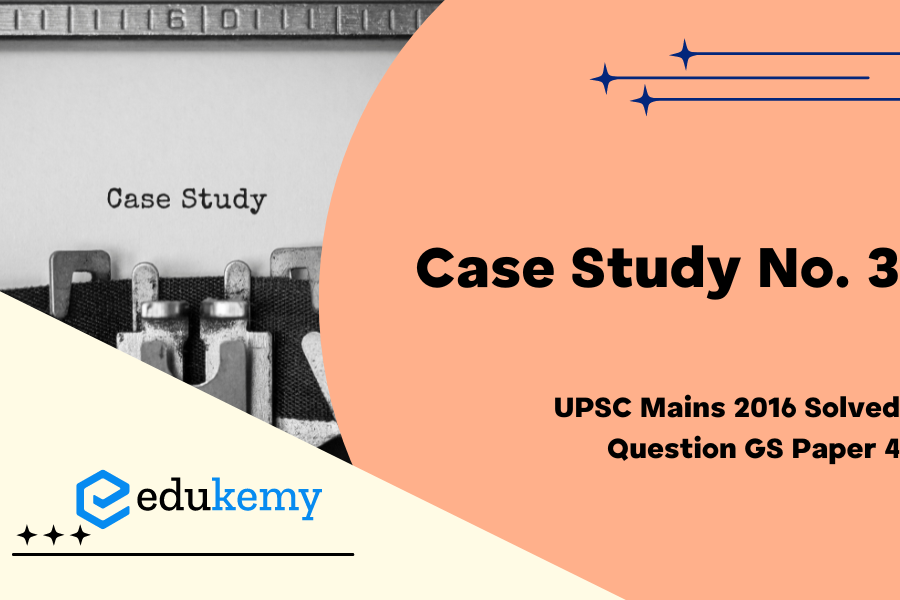A case study is a comprehensive and in-depth examination of a particular subject, often within its real-life context. It serves as a methodological tool to explore, analyze, and understand complex issues or phenomena, ranging from individual experiences to organizational challenges. Typically employed in various academic disciplines, business settings, and scientific research, a case study involves an extensive investigation that aims to provide a detailed account of the subject under scrutiny. By delving into the intricate details of a specific case, researchers can uncover valuable insights, draw conclusions, and offer practical solutions. This method offers a holistic approach, allowing for a nuanced understanding of the multifaceted factors influencing the subject, making it an invaluable tool for gaining knowledge and informing decision-making processes.
Contents
- 1 Q11. Suppose you are an officer in-charge of implementing a social service scheme to provide support to old and destitute women. An old and illiterate woman comes to you to avail the benefits of the scheme. However, she has no documents to show that she fulfils the eligibility-criteria. But after meeting her and listening to her you feel that she certainly needs support. Your enquiries also show that she is really destitute and living in a pitiable condition. You are in a dilemma as to what to do. Putting her under the scheme without necessary documents would clearly be a violation of rules. But denying her the support would be cruel and inhuman.
- 2 Answer:
- 3 In case you still have your doubts, contact us on 9811333901.
- Can you think of a rational way to resolve this dilemma?
- Give your reasons for it. (250 Words, 20 Marks)
Tag: Case studies.
Answer:
The given case is an example of an ethical dilemma that a person faces between professional ethics and empathy towards others. You want to perform your duty honestly but sometimes cases arise that may force you to overcome rules and guidelines. In such times these moral dilemmas arise.
Stakeholders involved in the Case:
- I am the officer in charge of implementing a social service scheme.
- An old and illiterate woman.

My course of action:
- The woman is old and illiterate, so just giving directions to complete the documents would not help her. I would ask a subordinate officer to help that woman in completing necessary documents, and providing benefits to her.
- Though there may be some delays in completing the document so in this specific condition, I would write to my senior officer and ask permission for some discretionary powers so that I can provide immediate relief to old women.
- This is the specific case that came into my knowledge but there may be lots of similar cases. To resolve these types of cases, I would inform the senior authorities and ask them to appoint a special officer that would look only at the problems related to old and illiterate people who are not able to complete their documents. A special desk in the office can be assigned to these types of cases.
Reasons for my action:
- Humanity: Government schemes suffer with red tapism and unnecessary rules and regulations. But it does not mean that honest and needy individuals without necessary documents cannot live with dignity. The need to handle such extreme cases based on humanity.
- Professional Duty: My duty does not conclude within office, profession requires me to be ready to work even beyond the condition being legitimate and justifiable actions.
- Empathy: Every human has sympathy towards the emotions of other humans, especially towards the helpless. Empathy will allow us to overcome barriers and perform our duties that lie beyond our immediate control.
Thus, balancing professional duty and human duty is the way. Our human inclinations must take over whenever professional tendencies fail to address the issue.
In case you still have your doubts, contact us on 9811333901.
For UPSC Prelims Resources, Click here
For Daily Updates and Study Material:
Join our Telegram Channel – Edukemy for IAS
- 1. Learn through Videos – here
- 2. Be Exam Ready by Practicing Daily MCQs – here
- 3. Daily Newsletter – Get all your Current Affairs Covered – here
- 4. Mains Answer Writing Practice – here


